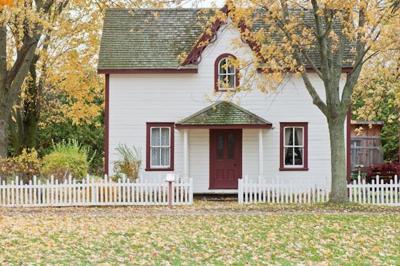
Embarking on a custom home-building project is an exciting adventure filled with possibilities, but it also comes with its fair share of challenges, especially when it comes to managing your budget effectively. However, with the right guidance and strategies in place, you can steer your project towards success without breaking the bank. In this article, we'll delve into practical insights and expert advice to help you navigate budget control for your custom home-building journey.
Understanding Your Financial Landscape
Before laying the foundation for your dream home, it's crucial to take a step back and assess your financial landscape. According to Ryley Monaghan, owner of a renowned custom home-building company called Oak Angel Builders, understanding your budgetary constraints is the cornerstone of a successful project. Take the time to evaluate your financial situation thoroughly, considering factors such as your savings, income, and any available financing options.
Once you have a clear picture of your financial parameters, you can begin to establish realistic expectations and set priorities for your custom home project. Remember, transparency and open communication are key when discussing your budget with potential builders and contractors. By being upfront about your financial constraints, you can ensure that everyone involved is on the same page and working towards a common goal.
Crafting a Strategic Plan
Crafting a strategic plan is essential for maintaining budget control throughout your custom home-building journey. Rather than diving headfirst into the project, take the time to break it down into manageable phases. According to Monaghan, this approach allows you to allocate your resources more efficiently and prioritize essential elements of your project while deferring less critical aspects to a later stage.
Start by outlining your project's key milestones and identifying which phases can be completed within your current budget. Consider factors such as construction costs, materials, labor, and any additional expenses that may arise along the way. By mapping out your project in advance, you can minimize the risk of overspending and ensure that your budget remains on track from start to finish.
Collaborating with Trusted Professionals
Collaborating with trusted professionals is essential for navigating the complexities of budget control in custom home building. Whether it's architects, designers, or builders, surrounding yourself with a knowledgeable team can provide invaluable guidance and support. According to Monaghan, experienced professionals can help you make informed decisions, identify cost-saving opportunities, and avoid common pitfalls that may derail your budget.
When selecting professionals to work with, prioritize those who have a proven track record of success in custom home building and share your vision for the project. Communication is key when working with a team, so make sure to establish clear channels for feedback and updates throughout the building process. By fostering a collaborative environment, you can streamline the budget control process and ensure that your project stays within your financial parameters.
Leveraging Local Resources and Knowledge
One of the most effective ways to control your budget during a custom home-building project is by leveraging local resources and knowledge. Utilizing local suppliers, subcontractors, and tradespeople can lead to significant cost savings and smoother project execution. Local professionals often have established relationships within the community, which can result in better pricing and reliable service.
In addition to cost savings, working with local resources ensures that your project benefits from regional expertise. Local builders understand the specific challenges and requirements of your area, such as climate considerations, building codes, and market trends. This localized knowledge can help you make informed decisions that optimize both your budget and the quality of your custom home. By tapping into the wealth of resources available within your community, you can enhance the efficiency and cost-effectiveness of your project.
Embracing Flexibility and Adaptability
Flexibility and adaptability are essential qualities when it comes to budget control in custom home building. As your project progresses, unexpected challenges and opportunities may arise that require you to adjust your plans and allocations accordingly. According to Monaghan, embracing flexibility allows you to respond to changing circumstances without compromising the overall vision and quality of your project.
Stay open-minded and be prepared to make trade-offs when necessary to keep your budget in check. Consider alternative materials or design elements that may offer cost savings without sacrificing style or functionality. By remaining flexible and adaptable, you can navigate the twists and turns of the custom home-building process with confidence and ease.
Navigating budget control in a custom home-building project requires careful planning, collaboration, and flexibility. By understanding your financial landscape, crafting a strategic plan, collaborating with trusted professionals, and embracing flexibility, you can ensure that your project stays on track financially while bringing your dream home to life. Remember, budget control is not just about cutting costs—it's about making informed decisions that prioritize value and long-term satisfaction. With the right approach, you can build the home of your dreams without breaking the bank.


(0) comments
Welcome to the discussion.
Log In
Keep it Clean. Please avoid obscene, vulgar, lewd, racist or sexually-oriented language.
PLEASE TURN OFF YOUR CAPS LOCK.
Don't Threaten. Threats of harming another person will not be tolerated.
Be Truthful. Don't knowingly lie about anyone or anything.
Be Nice. No racism, sexism or any sort of -ism that is degrading to another person.
Be Proactive. Use the 'Report' link on each comment to let us know of abusive posts.
Share with Us. We'd love to hear eyewitness accounts, the history behind an article.